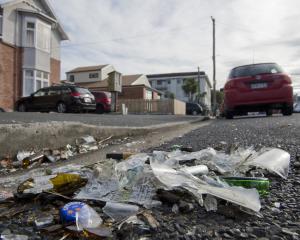
Suetonia Green
Dunedin School of Medicine dean Prof Suetonia Green said students in the medical school programme needed to meet members of the community to practise their communication skills and gain a better understanding of specific medical conditions and topics they were studying.
"So we're seeking volunteers who are willing to either come to the medical school to meet with a small group of students, or have two to three medical students visit them in their own homes."
All conversations would be private and confidential, she said.
The school was looking for people who were willing to share their experiences of conditions such as diabetes; heart disease; respiratory conditions; neurological conditions like Parkinson's disease, multiple sclerosis or stroke; kidney diseases; chronic illnesses such as long Covid, irritable bowel syndrome, myalgic encephalomyelitis/chronic fatigue syndrome, chronic pain; or anyone living with a disability of any kind that had a significant impact on their day-to-day lives.
"People with those long-term conditions have really important stories of how it impacts on them, so the students can understand and learn about that.
"They can also learn about how families are affected. Long-term conditions impact not just the person with the condition, it has an impact on their family as well."
The medical school also wanted volunteers who were the main carers for someone with a significant health condition or disability; people who wanted to make changes to their lifestyles for improved health or were doing so; people who had experienced a significant bereavement in the last 1-3 years; and people and organisations who helped people with addictions.
Interviewing those people helped medical students better understand the lived experience of illness, and helped them become better doctors in the future, Prof Green said.
"Students learn best when they meet real people with real conditions, because that allows them to add the knowledge that they've got from books into a human story.
"Those human stories are the things that help information stick for our students.
"That's why this is so important."
Past and present volunteers said being involved in those interviews was both enjoyable and meaningful, she said.
"The community feels like they're supporting and participating in the work of the medical school, they feel like they're giving back.
"I'm a doctor myself and so I know how much patients and families and whānau feel like they want to give back to the programme that has looked after them.
"It's a really lovely kind of reciprocity."
She urged those interested in volunteering to contact Friends of the Medical School (foms@otago.ac.nz).












